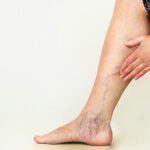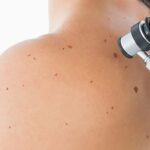The skin is the body’s largest organ, serving as a protective barrier against the environment. Numerous conditions can affect the skin, ranging from common irritations to serious medical issues. A Dermatologist is a medical doctor who specializes in diagnosing and treating conditions that affect the skin, hair, and nails, offering expertise to manage a wide spectrum of disorders.
Acne and Acne Scars
Acne is a common skin condition that occurs when hair follicles become clogged with oil and dead skin cells, resulting in pimples, blackheads, and whiteheads. While there are many over-the-counter products, a dermatologist can offer stronger treatments for more stubborn cases, like topical creams, oral medications, or specialized procedures. They can also help reduce acne scars and improve skin texture with professional treatments.
Eczema and Dermatitis
Eczema, also known as atopic dermatitis, is a chronic condition characterized by dry, itchy, and inflamed skin. It often begins in childhood, but it can affect individuals at any age. Dermatitis is a general term for skin inflammation, encompassing several types, including contact dermatitis, which is triggered by an external substance. A dermatologist can help identify triggers and develop a personalized management plan.
This plan may include a combination of strategies to soothe the skin and reduce flare-ups, such as:
- Prescription-strength topical corticosteroids or calcineurin inhibitors to control inflammation.
- Moisturizers and barrier repair creams to hydrate the skin and prevent dryness.
- Recommendations for gentle skincare routines and lifestyle adjustments to avoid irritants.
- Advanced therapies like phototherapy or systemic medications for severe cases.
Psoriasis and Rosacea
Psoriasis and rosacea are two distinct chronic skin conditions. They both cause visible and often uncomfortable symptoms. Effective long-term management of these conditions requires professional medical guidance.
Understanding Psoriasis
Psoriasis is an autoimmune disease that accelerates the life cycle of skin cells, causing them to build up rapidly on the skin’s surface. These extra cells form scales and red patches that are sometimes itchy and painful. This condition can appear anywhere on the body, and its severity varies from person to person.
Managing Rosacea
Rosacea is a common skin condition characterized by blushing or flushing, as well as visible blood vessels on the face. It may also produce small, red, pus-filled bumps, and in some individuals, it can cause the skin on the nose to thicken. While the exact cause is unknown, treatment can control and reduce the signs and symptoms.
Moles and Skin Cancer
Regular skin examinations are beneficial for monitoring moles and detecting signs of skin cancer in its early stages. While most moles are harmless, some can develop into melanoma, a serious form of skin cancer. Here’s what you should know:
- Skin Checks: Dermatologists perform thorough skin checks to evaluate existing moles and identify any new or changing growths that may be concerning.
- Biopsy: If a suspicious mole is found, a biopsy can be performed to determine if it is cancerous.
- Early Detection: Identifying and treating skin cancer early, including basal cell carcinoma, squamous cell carcinoma, and melanoma, significantly improves outcomes.
Consult a Dermatologist Today
Managing skin health involves understanding when to seek professional care. From inflammatory conditions like eczema to the monitoring of moles for skin cancer, specialists provide diagnostic and therapeutic services. If you have concerns about your skin’s condition or notice any unusual changes, consult a dermatologist for an evaluation.











